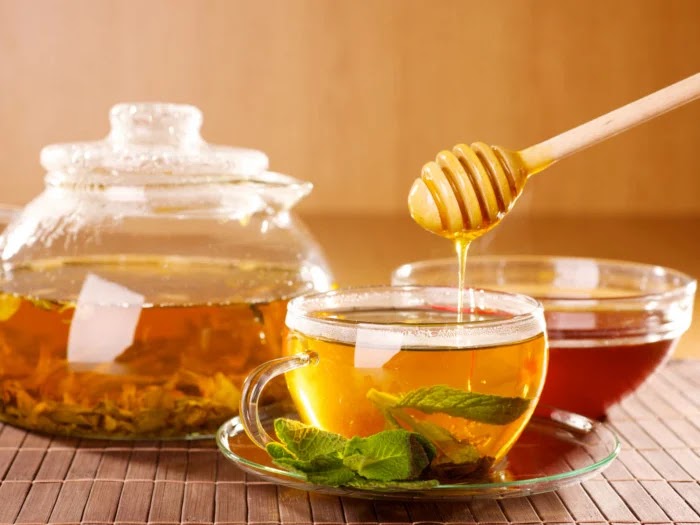A Comprehensive Guide to Common Cold Remedies
Introduction
Having a common cold is an all too familiar experience for many people. The sneezing, congestion, and general discomfort can be quite bothersome. Fortunately, there are numerous remedies available to help alleviate the symptoms and shorten the duration of a common cold. In this comprehensive guide, we will explore various effective remedies that can provide relief and promote a faster recovery. From natural remedies to over-the-counter medications, we will cover everything you need to know to combat the common cold.
Table of Contents
- Understanding the Common Cold
- Rest and Hydration
- Steam and Humidity
- Nasal Irrigation
- Over-the-Counter Medications
- Herbal and Natural Remedies
- Essential Oils
- Honey and Herbal Teas
- Vitamin C and Zinc
- Chicken Soup
- Proper Hand Hygiene
- Sleep and Stress Management
- Dietary Considerations
- When to Seek Medical Attention
- Prevention Tips
Understanding the Common Cold
The common cold is an upper respiratory system viral infection that predominantly targets the nasal passages and throat. It is caused by a group of viruses known as rhinoviruses, and it spreads through respiratory droplets when an infected person coughs or sneezes. The most common symptoms include a runny or stuffy nose, sneezing, sore throat, cough, mild headache, and fatigue. While the common cold is usually harmless and resolves on its own within a week or two, the symptoms can be quite uncomfortable.
read more about Understanding Long COVID: Persistent Symptoms and Management
Rest and Hydration
One of the most important remedies for the common cold is to get plenty of rest and stay hydrated. Rest allows your body to conserve energy and focus on fighting off the viral infection. Adequate hydration helps thin out mucus and keeps the respiratory tract moist, relieving congestion and soothing a sore throat. Drinking warm fluids like water, herbal teas, or clear broths can be particularly soothing.
Steam and Humidity
Inhaling steam or increasing humidity in your environment can provide immediate relief from nasal congestion and soothe irritated airways. You can take a hot shower, use a humidifier, or simply place your face over a bowl of hot water and breathe in the steam. Adding a few drops of essential oils like eucalyptus or peppermint can enhance the therapeutic benefits.
Nasal Irrigation
Nasal irrigation, also known as nasal rinsing or nasal douching, is a practice that involves flushing out the nasal passages with a saline solution. It helps clear excess mucus, reduce congestion, and relieve sinus pressure. You can use a neti pot, squeeze bottle, or nasal spray to perform nasal irrigation. It is essential to use sterile or previously boiled water to avoid the risk of infection.
Over-the-Counter Medications
Over-the-counter (OTC) medications can help alleviate specific symptoms of the common cold. Pain relievers such as acetaminophen or ibuprofen can reduce fever, headache, and sore throat. Decongestants can provide temporary relief from nasal congestion, but they should be used sparingly and for short durations to avoid rebound congestion. It is important to carefully follow the instructions and consult a healthcare professional if you have any underlying medical conditions or are taking other medications.
Herbal and Natural Remedies
Many herbal and natural remedies have been used for centuries to treat cold symptoms. Echinacea, elderberry, and garlic are believed to boost the immune system and reduce the severity and duration of cold symptoms. While scientific evidence supporting their effectiveness is limited, some people find these remedies helpful. It’s important to note that herbal and natural remedies may interact with certain medications, so it’s advisable to consult with a healthcare professional before using them.
Essential Oils
Essential oils have become increasingly popular due to their widely recognized potential for providing therapeutic advantages. Peppermint oil, eucalyptus oil, and tea tree oil are commonly used for relieving congestion and clearing the airways. You can add a few drops of these oils to a diffuser, inhale them directly, or dilute them with a carrier oil and apply them topically. However, it’s crucial to use essential oils cautiously and follow proper dilution guidelines to avoid skin irritation or adverse reactions.
Honey and Herbal Teas
Honey has been utilized for centuries as a traditional solution to alleviate coughs and alleviate discomfort in the throat Its antimicrobial properties can help reduce throat inflammation and provide temporary relief. Adding a teaspoon of honey to a cup of herbal tea, such as chamomile or ginger tea, can further enhance its benefits. Remember, honey should not be given to children under the age of one due to the risk of botulism.
Vitamin C and Zinc
Vitamin C and zinc are vital nutrients renowned for their ability to enhance the immune system and promote overall health. While they may not prevent the common cold, they could potentially shorten its duration and reduce symptom severity. Citrus fruits like oranges and lemons, along with strawberries, kiwi, and bell peppers, are examples of vitamin C-rich foods Zinc can be found in oysters, beef, legumes, and nuts. If you prefer to take supplements, consult with a healthcare professional to determine the appropriate dosage.
Chicken Soup
Chicken soup has been a go-to remedy for generations when it comes to combating cold symptoms. The warm liquid helps soothe the throat, and the ingredients in the soup, such as vegetables and chicken, provide nourishment and hydration. Additionally, some studies suggest that chicken soup may have mild anti-inflammatory effects, which can help alleviate symptoms.
Proper Hand Hygiene
Practicing good hand hygiene is crucial in preventing the spread of the common cold. Wash your hands thoroughly with soap and water for at least 20 seconds, especially before eating, after using the restroom, or after being in public places. In instances where soap and water are inaccessible, employing an alcohol-based hand sanitizer is recommended. Avoid touching your face, as it can transfer the virus from your hands to your respiratory system.
Sleep and Stress Management
Adequate sleep and stress management play significant roles in maintaining a strong immune system. Aim for seven to eight hours of quality sleep each night to support your body’s natural defense mechanisms. Furthermore, heightened stress levels can compromise the immune system, rendering you more vulnerable to infections. Engaging in relaxation techniques such as deep breathing exercises, meditation, or yoga can help reduce stress levels and promote overall well-being.
Dietary Considerations
Maintaining a healthy diet is essential for supporting your immune system’s function. Ensure that your meals encompass a diverse range of fruits, vegetables, whole grains, lean proteins, and nourishing fats. Foods rich in antioxidants, such as berries, leafy greens, and nuts, can help protect your cells from damage. Maintain proper hydration by consuming a sufficient quantity of water throughout the day.
When to Seek Medical Attention
Most cases of the common cold can be managed at home with rest and self-care remedies. Nevertheless, certain situations may arise where seeking medical attention becomes necessary Seek medical advice if:
- Cold symptoms persist for more than 10 days or worsen over time.
- You have a high fever (above 100.4°F or 38°C).
- You experience severe headache, facial pain, or sinus pressure.
- You have difficulty breathing or chest pain.
- You develop ear pain or discharge.
- You have underlying medical conditions that may complicate the cold.
Prevention Tips
Preventing the common cold is often more manageable than treating it. Here are some preventive measures you can take:
- Regularly cleanse your hands with soap and water to maintain proper hygiene.
- Avoid close contact with individuals who have a cold.
- When you cough or sneeze, remember to use tissues or your elbow to cover your mouth and nose..
- Disinfect frequently-touched surfaces, such as doorknobs and countertops.
- Sustain a healthy lifestyle by incorporating a well-balanced diet, engaging in regular exercise, and prioritizing ample sleep.
Conclusion
Dealing with a common cold can be uncomfortable, but with the right remedies, you can find relief and recover more quickly. Remember to rest, stay hydrated, and try various remedies like steam inhalation, nasal irrigation, and over-the-counter medications. Herbal teas, essential oils, and dietary considerations can also provide comfort and support your immune system. If symptoms persist or worsen, don’t hesitate to seek medical attention. By following preventive measures, you can reduce the risk of contracting the common cold and stay healthy throughout the year.
FAQs
-
Can antibiotics treat the common cold?
- No, antibiotics do not have any effect on viral infections such as the common cold.They are only prescribed for bacterial infections.
-
Are there any side effects of nasal irrigation?
- When performed correctly with sterile or boiled water, nasal irrigation is generally safe. However, improper technique or using unsterile water can lead to infections.
-
Can vitamin C and zinc supplements prevent the common cold?
- While vitamin C and zinc may support the immune system, their effectiveness in preventing the common cold is still debated among experts.
-
Can I exercise with a common cold?
- It’s generally advisable to avoid strenuous exercise when you have a cold. Allow your body to rest and recover before engaging in intense physical activity.
-
How long does a common cold typically last?
- The common cold usually lasts for about 7 to 10 days. However, some symptoms may persist for a longer duration
















 Viesearch - The Human-curated Search Engine
Viesearch - The Human-curated Search Engine
